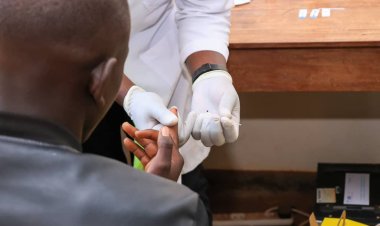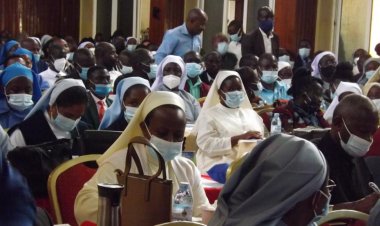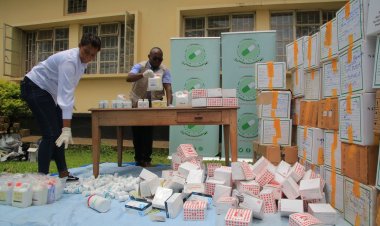Addressing Uganda’s NCD Crisis: A Call for Diet Change

Non-Communicable Diseases (NCDs) now account for 33% of all deaths in Uganda, underscoring a mounting public health crisis.
With the World Health Organization (WHO) estimating a 22% chance of Ugandan citizens dying prematurely from NCDs like cancer, heart disease, diabetes, and respiratory illnesses, the urgency to address these lifestyle-driven diseases has never been more critical.
As Uganda readies for the Kampala Vegan Festival at the National Theatre this Sunday, advocates spotlight plant-based diets and lifestyle adjustments as crucial tools in combating this growing crisis.

Tobacco use remains a prevalent concern, particularly among men, of whom 15% still use tobacco products despite an overall decline in smoking rates.
Paired with increasingly common issues of unhealthy diets and insufficient physical activity, Uganda is seeing a rise in obesity, hypertension, and diabetes, with nearly one-fifth of adults reporting high blood pressure.

The 2019 report from Uganda Diabetes Association painted an even more troubling picture, estimating that over 200,000 children are affected by diabetes—a number likely higher due to underreporting and lack of access to diagnostics.
The socio-economic impacts of these diseases are immense. Premature NCD deaths lead to increased healthcare costs, loss of productivity, and greater financial strain on families.
For instance, treating a single cancer patient can cost upwards of UGX 6 million for chemotherapy alone, while an estimated UGX 2.5 billion was spent on cardiac treatments for a fraction of heart patients at the Uganda Heart Institute in a single year.

Lack of trained health workers and limited diagnostic facilities also stymie effective response to NCDs.
Many Ugandans are left without access to preventive care and timely treatment. President Yoweri Museveni has urged citizens to prioritize healthy lifestyles, specifically addressing dietary choices and calling for change.
The Kampala Vegan Festival arrives as a timely event to advance these goals. The festival promotes plant-based eating, an approach proven to reduce the risk of various NCDs, offering accessible alternatives to traditional high-risk diets.

WHO supports investment in NCD prevention, with studies indicating that improving population health also strengthens economic resilience, reducing healthcare spending and preserving productivity.
“This festival goes beyond promoting veganism. It’s about empowering Ugandans to take charge of their health and make informed choices that can reduce the risk of life-threatening diseases,” says Nabaasa Innocent, the Executive Director, Uganda Vegan Society.

Advocates hope that with such initiatives like the Vegan festival, more Ugandans will be inspired to make informed choices that prioritize health and sustainability.


































